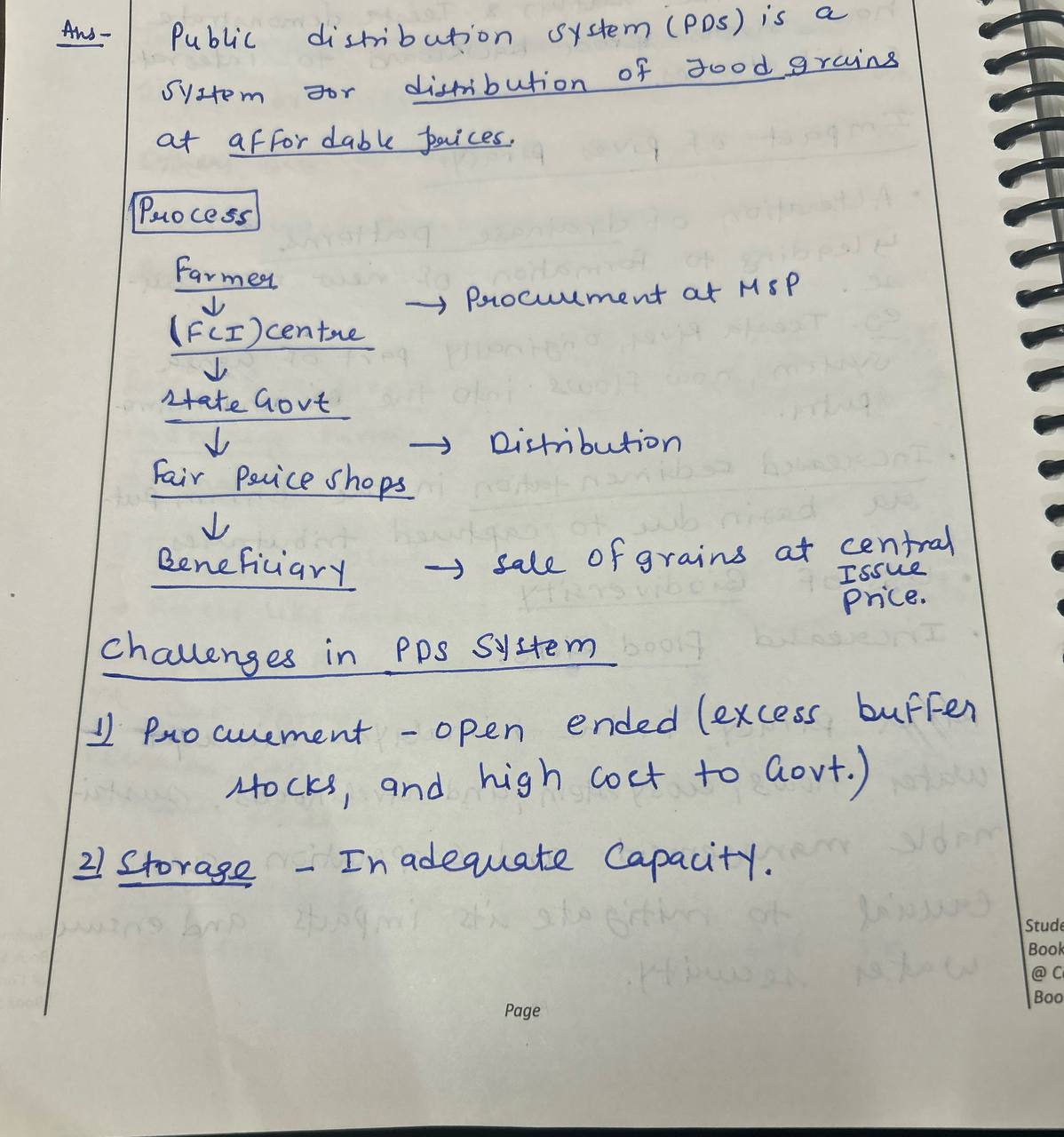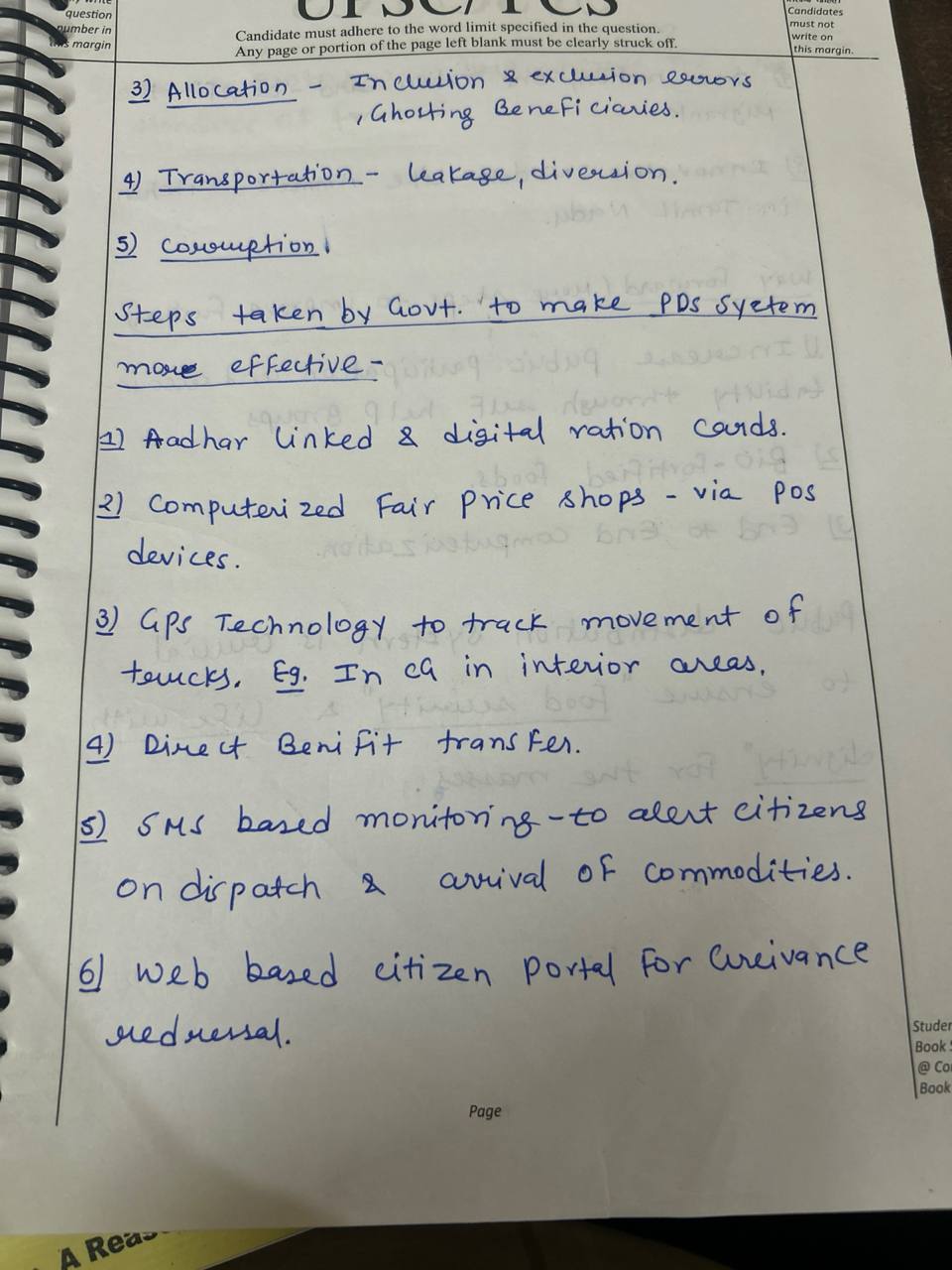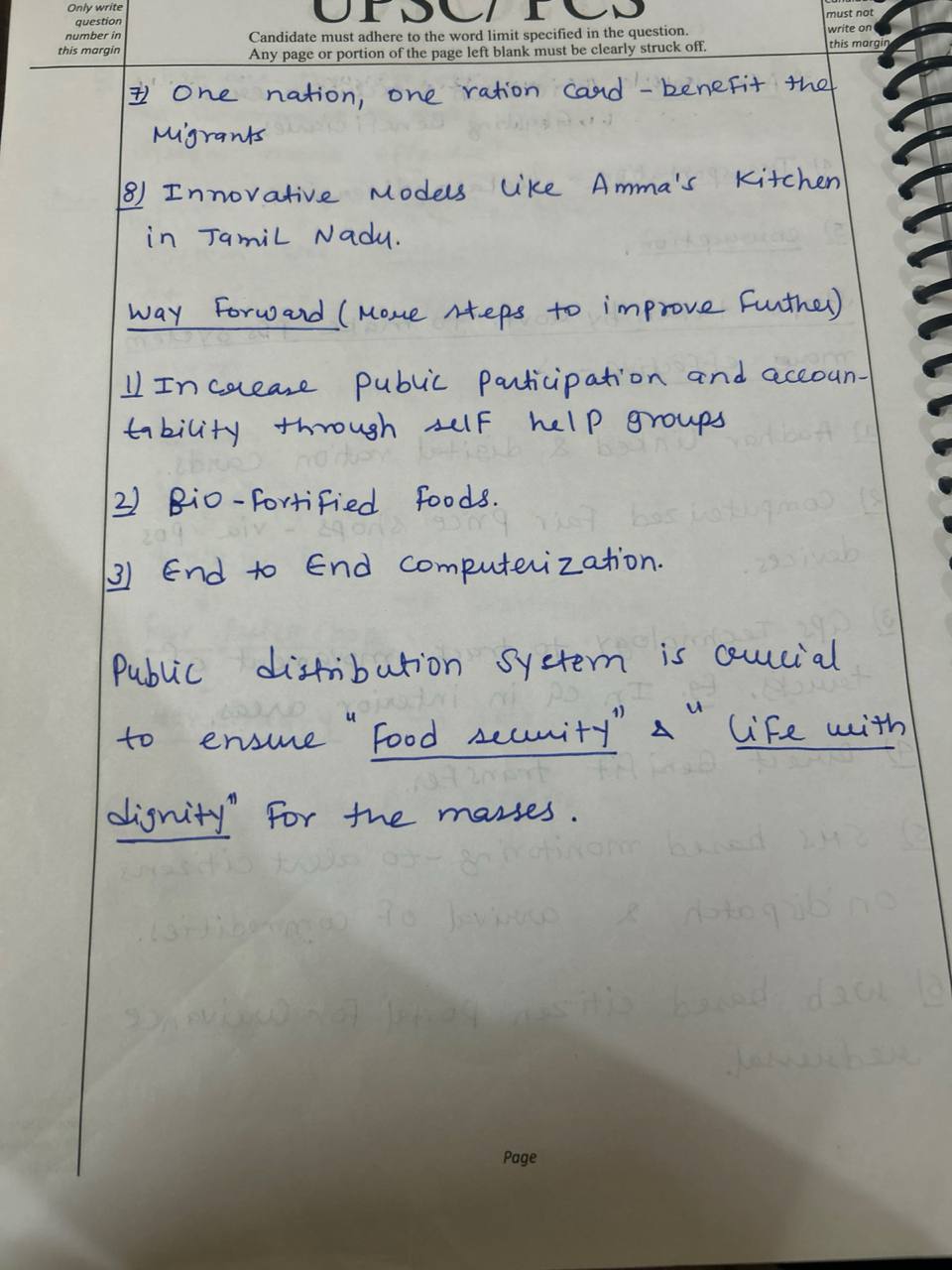How can sustainable farming practices be implemented to improve soil health and prevent degradation?
India faces significant challenges from the increasing frequency and intensity of extreme weather events, impacting its sustainable development goals. To mitigate and adapt to climate change, India can take the following measures: 1. Renewable Energy Transition: Expand solar, wind, and hydroelectricRead more
India faces significant challenges from the increasing frequency and intensity of extreme weather events, impacting its sustainable development goals. To mitigate and adapt to climate change, India can take the following measures:
1. Renewable Energy Transition: Expand solar, wind, and hydroelectric power to reduce greenhouse gas emissions.
2. Afforestation and Reforestation: Enhance carbon sinks by planting trees and restoring degraded forests.
3. Climate-Resilient Agriculture: Develop drought-resistant crop varieties and improve water management practices.
4. Infrastructure Resilience: Build flood defenses, improve drainage systems, and strengthen buildings to withstand extreme weather.
5. Early Warning Systems: Implement advanced meteorological services for timely alerts and disaster preparedness.
6. Sustainable Urban Planning: Design cities with green spaces, efficient public transport, and waste management systems.
7. Public Awareness and Education: Promote climate literacy and community engagement in climate action.
These measures can help India mitigate the impacts of climate change and adapt to its consequences, ensuring progress towards sustainable development.
See less





Our soil is under threat, but sustainable farming offers a powerful defense! Here are key strategies to improve soil health and prevent degradation: Minimize Disruption: Ditch the constant plowing! Practices like no-till or reduced-till farming leave the soil undisturbed, reducing erosion and fosterRead more
Our soil is under threat, but sustainable farming offers a powerful defense! Here are key strategies to improve soil health and prevent degradation:
Minimize Disruption: Ditch the constant plowing! Practices like no-till or reduced-till farming leave the soil undisturbed, reducing erosion and fostering beneficial microbes that live within. Cover crops planted during off-seasons further protect the soil, add organic matter as they decompose, and suppress weeds.
Feed the Soil: Think of compost and aged manure as nutritious meals for your soil. Regularly adding them replenishes organic matter, crucial for holding nutrients and water, and supports a thriving soil biology.
Crop Rotation: Don’t let your soil get bored! Rotating crops from different plant families helps maintain a balanced nutrient profile and disrupts pest and disease cycles, keeping your soil healthy and productive.
Support the Microbiome: Just like our gut, soil thrives with a healthy microbiome. Minimize synthetic pesticides that harm these beneficial organisms. Consider biofertilizers and biostimulants to promote helpful microbes and boost plant root health.
Think Holistically: Sustainable farming is about a balanced ecosystem. Integrated Pest Management (IPM) combines natural controls, biological agents, and targeted pesticide use only when necessary. Integrating trees and shrubs (agroforestry) provides windbreaks, reduces erosion, and creates a haven for beneficial insects.
By implementing these practices, farmers can create a healthy and resilient soil ecosystem. This translates to improved fertility, better water retention, increased crop yields, and a more sustainable future for agriculture.